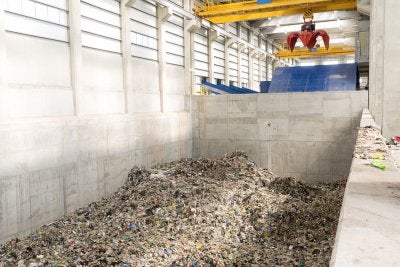-
A Look at Waste Management Programs for Schools
Recycling, waste reduction, and sustainability are all elements of effective waste management in Atlanta for schools and academic institutions. Most schools must stick to a strict budget, and have a fixed amount that they can spend on waste disposal services. Here is a look at waste management programs for schools that can significantly reduce waste disposal costs.

Implement an Effective Recycling Program
The best way to reduce waste and lower waste disposal costs is by implementing a comprehensive recycling program. Your local recycling center can recycle paper, cardboard, glass, plastic, wood, electronics, scrap metal, and even food waste. You should work closely with each department in your school to develop a convenient and accessible recycling program. Recycling bins should be strategically placed in visible areas around the school, particularly in eating areas, bathrooms, cafeterias, and common outdoor spaces.
Hold Students and Staff Responsible for Maintaining Waste Reduction
Students and staff should be responsible for helping the school maintain waste reduction. You should provide students and staff with recycling facts, waste reduction strategies, and the tools to analyze and reduce their own waste production. They should be educated on how to reduce, reuse, and recycle materials to lower their own environmental impact. You should encourage students and faculty to evaluate the materials in their recycling bins and wastebaskets, and think about ways that they can reuse and recycle more materials than they throw away. Keep everyone up to date on waste analytics so that they are aware of the progress that is being made.
Consult with a Waste Management Company About Sustainable Initiatives
A waste management company can help you develop and implement sustainable waste reduction and recycling initiatives. Using waste analytics, you can determine which departments generate the most waste, and how this waste can be reduced. You can also determine which days of the week will be most effective for trash pickup and recycling pickup. This will reduce the amount of waste generated, and reduce your overall waste disposal costs.
-
Getting the Facts About Multi-Family Recycling
If you live in a multi-family apartment building or housing unit, chances are good that the building participates in recycling in Atlanta . Your building manager or leasing agent should provide you with recycling facts, recycling bins, and important information about how to reduce, reuse, and recycle. Here are some great recycling facts about multi-family recycling programs.

Recycling Services Must Be Convenient for Everyone
If your building has a multi-family recycling program, the building manager must ensure that recycling services are convenient to everyone in the building. He can start by distributing recycling bins to each apartment or housing unit. Residents must be aware of where recycling bins should be taken for the weekly recycling collection services. Generally, recycling bins are placed in common areas as well, such as laundry rooms, mail areas, and lobbies. Recycling collection typically occurs in the same place that the building’s trash pickup is.
Recycling Bins and Dumpsters Should be an Appropriate Capacity
Your building manager must provide each apartment with a recycling bin that is large enough to hold a family’s weekly recyclables. You should have access to additional recycling bins as needed. The dumpsters used for waste disposal and recycling disposal should be large enough to handle the entire building’s weekly waste and recycling production. You should ask your building manager about junk removal services for large recyclables, such as electronics and appliances, that won’t fit in traditional recycling bins. If your building generates a lot of cardboard recycling, your building manager may invest in a roll off dumpster rental, baler, or compactor to manage the cardboard.
Building Mangers Must Provide Key Recycling Facts and Information
In order to ensure that everyone in the building is aware of the most effective ways to reduce, reuse, and recycle, your building manager must distribute key recycling information. He should provide easily accessible and visible recycling facts, including which materials are recyclable, and how to best manage recyclable materials. Residents should also know how to recycle uncommon materials, such as electronics, appliances, motor oil, batteries, bulky waste, and hazardous waste.
RECENT POSTS
categories
- Uncategorized
- Waste Management Atlanta
- Waste Disposal and Recycling
- Hazardous Waste Disposal
- Chemical waste removal
- solid waste removal
- R3 Program
- Sustainable Organizations
- Sustainable Waste Removal
- Commercial Waste Removal
- Materials Management Program
- Dumpster Rental
- Roll Off Dumpsters
- Construction Site Waste Removal
- Sustainability
- Recycling in Atlanta
- Industrial Recycling
- Industrial Waste Removal Services
- Southern Waste & Recycling
- Waste Removal Atlanta
- Waste Specialists
- Atlanta
- Infographic
- Front Load Dumpsters
- Rear Load Dumpsters
- Reusable Electronics
- Dump Truck Atlanta
- Recyclable Electronics
- Trash Compactors
- Recycling
- Recycling Program
- Office Recycling
- Metal Recycle
- Electronic Waste
